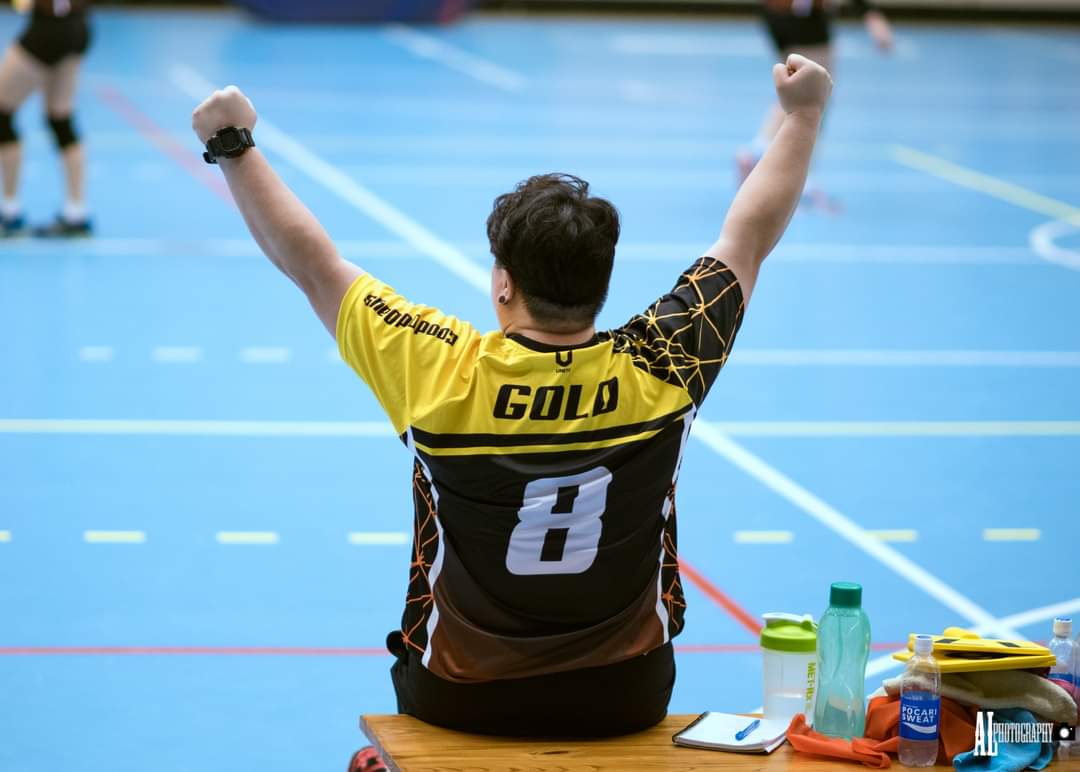By Kelly Ng //
We have often spoken about how incorporating physical activity in our daily routine can be beneficial for mental wellness. On the other hand, how do sporting professionals care for their mental fitness? The Tapestry Project hears from athletic counsellor and volunteer advisor for Safe Sports at Sports Singapore, Ms Sharon Teo, founder of Starfish Stories Psychotherapy, on how she supports athletes on this front.
What is athletic counselling?
Ms Teo: Athletic counselling combines counselling techniques with sports psychology theories to help athletes through their mental struggles. Sports psychology focuses on maintaining potential through maintaining an athlete’s psychological state of mind while athletic counselling addresses their socio-emotional issues.
How is it different from other forms of counselling? How do athletes’ needs differ?

Ms Teo: Broadly, counselling refers to a form of “advising” or “providing help” to the recipient. There are many areas of specialisation within counselling, from counselling young delinquents to helping individuals overcome an addiction. Sports is another specialisation. To counsel sports people, we have to get a good grasp of the practices, habits and dynamics unique to each sport and each team. For example, if you are working with the national volleyball team, we must understand the terms used in the game, the training routines and the dynamics between coaches, players and institutions. This will provide some insights to understanding how the players think and behave.
Basically, we should try as much as possible to speak the sport’s lingo.
These are some common issues athletes face, but the list is not extensive:
- Anxiety from daily stressors, such as school, relationships, and family
- Burnout
- Loss of motivation
- Loss of identity due to injury, lack of competition, or retirement
- Eating disorders
- Bullying
- Early Specialisation
How did you decide to be an athletic counselor?
Ms Teo: While pursuing my Masters in Counselling in Brisbane, I worked on a project that centered on “grief and loss in sports”. That made me reflect on my own sporting experiences. One vivid memory was a volleyball final during the national championships in my secondary school days. After battling ball for ball, set for set, the last ball was a back court spike which the opponent couldn’t receive. But I was caught stepping on the back court line before spiking the ball, which was against the regulations. That was a mistake which closed the chapter for my volleyball team and me at secondary school. It was a game we could never replay again. The emotional impact, for me, was immense.
I have met many who similarly felt a sense of loss after retiring or because they lost opportunities to compete due to injury. As a former elite athlete myself, this was an area I felt strongly about and confident to address. After returning from my studies, I found opportunities to share the concepts of how athletic counsellors can play a part in Singapore’s sporting ecosystem. It is still a work-in-progress.
// I would strongly encourage more sports psychologists to be equipped with counselling knowledge and also for counsellors who are passionate about sports to work with elite athletes. More knowledge and focus on mental health from a clinical perspective is important for fostering a resilient, confident and trusting environment for the growth of our athletes.//
What challenges do you face in this line of work?
Many are confronted with stigma that prevent them from seeking counselling. Often, those who see a counsellor are perceived as weak, naughty, or delinquent. I am always trying to help others see counselling as a form of self enhancement, to help them understand that there is no shame in asking for help. Seeking counselling support is akin to going to see a general practitioner when you have a flu, cough or headache. No one feels judged for consulting a GP to get medication or even just for a peace of mind. It should be the same working with a counsellor through your life issues.
Many issues about mental health came up in the recent Tokyo 2020 Olympics. What are your thoughts?
It is a good sign that athletes are acknowledging the importance of maintaining their mental and social emotional states of mind. World-class athletes, or aspiring world-class athletes, must pay attention to biopsychosocial aspects of their development – this refers to the interconnection between biology, psychology, and socio-environmental factors. As a community, we must also recognise that athletes are not superheroes. They do make mistakes and deserve our respect even if they don’t win a medal, as they have given their best shot and carried the national flag with pride and dignity.

What do you hope to see more of in Singapore’s sporting arena?
I am hoping for more job opportunities for trained athletic counsellors to be part of the sporting ecosystem, so that we can work hand in hand with the other sports science specialists. The field is currently not prioritised nor well understood in Singapore. In line with that, I hope there will be greater awareness and acknowledgement on the need to educate different stakeholders, including schools and associations, coaches, and the athletes themselves, on mental health care and prevention from clinical perspective. I also hope the rest of our society can be more gracious and supportive of our athletes, regardless of their performance.
All images provided by Ms Sharon Teo
Read more of our Tapestry Stories here.

